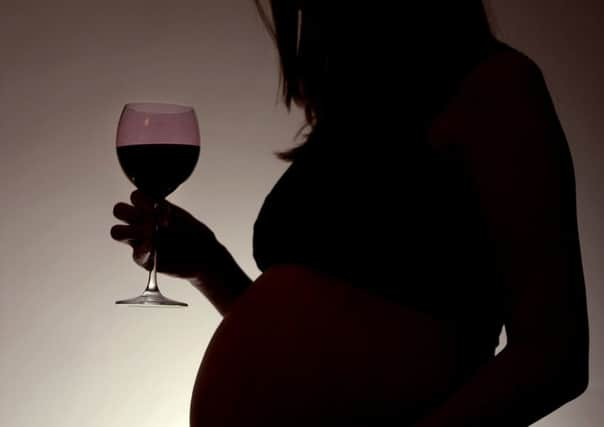One child in 6 '˜affected by drinking during pregnancy'


The phenomenon known as foetal alcohol spectrum disorder, or FASD, is thought to be under-diagnosed, with only one specialist clinic in England.
The condition affects learning and behaviour and can cause physical abnormalities.
Advertisement
Hide AdAdvertisement
Hide AdResearchers from Bristol and Cardiff Universities used information collected by women who were pregnant between 1991 and 1992, and followed the development of 13,495 children from birth until the age of 15.
The UK has the fourth highest level of pre-natal alcohol use in the world but the research is the first to estimate how many people may have FASD.
Dr Cheryl McQuire, researcher in epidemiology and alcohol-related outcomes at Bristol, who led the study, said: “Our results showed that a significant number of children screened positive for features consistent with FASD.
“The high rates of prenatal alcohol use and FASD-relevant symptoms that we found in our study suggest that FASD is likely to be a significant public health concern in the UK.
Advertisement
Hide AdAdvertisement
Hide Ad“These results are important because without UK estimates of FASD prevalence, awareness will remain low and children, teenagers and adults will continue to find it difficult to seek diagnosis and to access the support they may need.”
In the research, which used data from the Children of the 90s study in Bristol, up to 79 per cent of children were exposed to alcohol.
“Recent estimates suggest that three quarters of women drink some alcohol during pregnancy, with one third at binge levels,” Dr McQuire said.
“This suggests that many individuals in our population today could also have symptoms of FASD.
Advertisement
Hide AdAdvertisement
Hide Ad“It is important that people are aware of the risks so that they can make an informed decision about drinking in pregnancy.”
Researchers defined a positive FASD screening one that revealed problems with at least three different areas of learning or behaviour, with or without physical anomalies.
They included growth deficiency and distinctive facial features, such as a thin upper lip and small eye openings.
Dr Raja Mukherjee, who runs a diagnostic clinic for FASD at Surrey and Boarders Partnership NHS Foundation Trust, said: “These are really important results that show there are likely to be many individuals with this disorder already out there who are being missed.
Advertisement
Hide AdAdvertisement
Hide Ad“There seems to be a disconnect between these findings and what many clinicians often report as a rare condition.
“It shows that it is a disorder that is seemingly hidden in plain sight that we need to pay attention to.
“Unless we start looking for it we will continue to miss it.
“These results can be the first step in helping us in the UK to realise it is no longer a condition we can ignore.”
Advertisement
Hide AdAdvertisement
Hide AdSandra Butcher, chief executive of NO-FAS UK, a charity to help those affected, said more support was needed “on every level”.
“This study shines light on a staggeringly widespread and largely avoidable public health crisis,” she said.